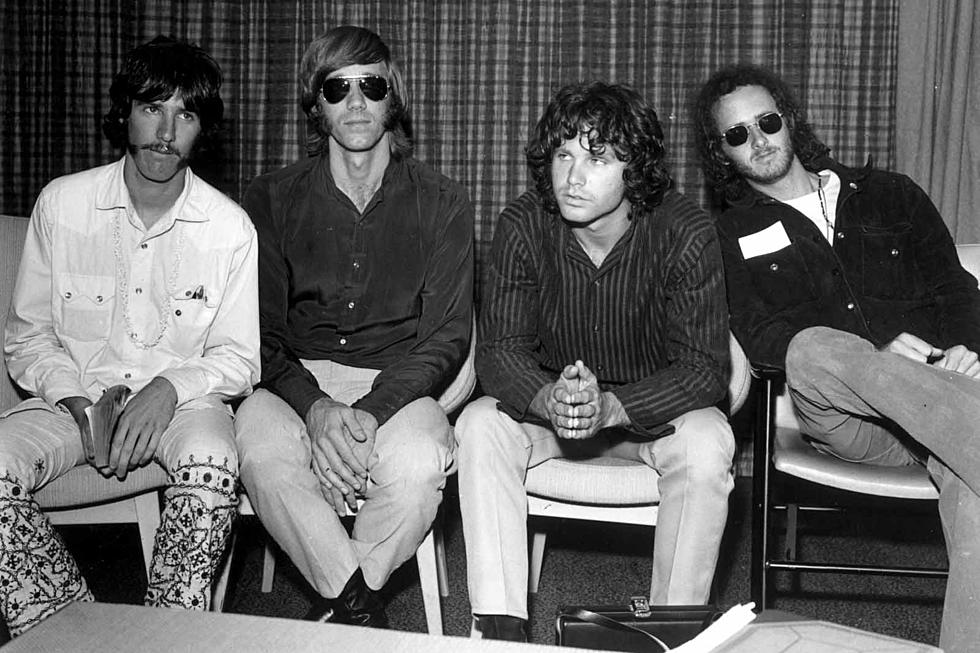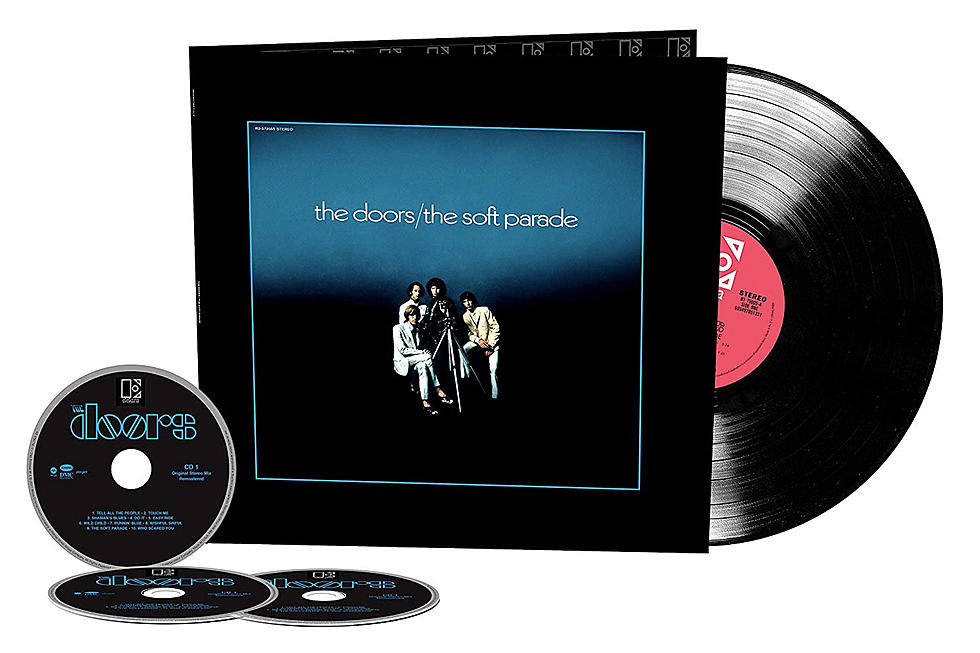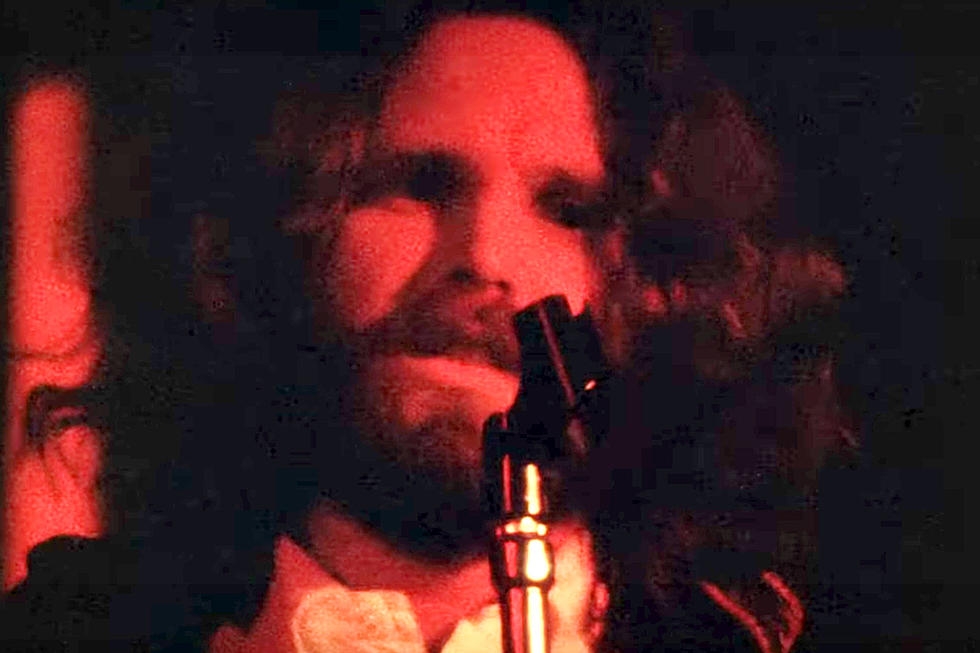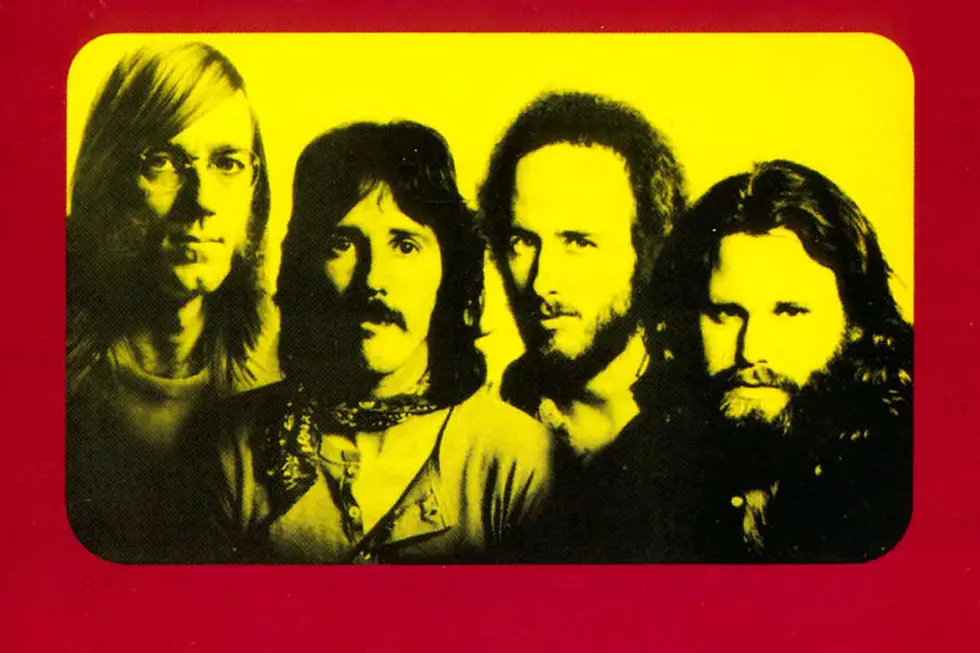
Concert Promoter Mike Belkin Dishes on the Doors: ‘Where’s Jim?’
Born in the back room of his family’s business, Mike Belkin and his brother Jules started to put together the first pieces of their future concert promotions empire in the mid '60s.
Their first booking was a 1966 double bill featuring the Four Freshmen and the New Christy Minstrels -- an outing that performed well, in the sense that it actually happened. But according to Jules, who was interviewed by the industry publication Pollstar, it wasn’t actually profitable, losing about $35. But the experience they went through to make the show happen was enough to fuel their desire to continue pushing forward with their new developing business.
It was a solid move -- by the early ‘70s, Belkin Productions was presenting a wide array of now legendary talent in the Cleveland area, and eventually nationally, including David Bowie, the Who and Bruce Springsteen. Between 1974 and 1980, their World Series of Rock festivals at Cleveland Municipal Stadium attracted massive sellout crowds, which came in droves to witness some incredible one-day lineups. For instance, on July 28, 1979, Aerosmith headlined a World Series of Rock date that also featured Ted Nugent, Journey, Thin Lizzy, AC/DC and the first North American performance of Scorpions. The Rolling Stones headlined two other World Series gigs in 1975 and 1978, while Pink Floyd also attracted a capacity crowd of more than 80,000 in 1977.
More than 50 years later, Belkin has collected a lifetime of memories in a new book, Mike Belkin: Socks, Sports, Rock & Art, a collaboration with writer Carlo Wolff, who spent two years interviewing Belkin. “The interviews were in-depth, to put it mildly. You know, they went on,” Wolff tells Ultimate Classic Rock. “They lasted for probably two to four hours. They lasted until we got tired, essentially.” One benefit was that Belkin had saved everything related to his life and career -- boxes and boxes of materials. It’s not hard to imagine that it would be easy to get lost in those boxes, doing research, but Wolff says that never was an issue, although there were definite challenges.
“He would bring something up and then we’d try to find a clip that would corroborate it," Wolff notes. "But he has a weird kind of tenacious mind. He saves everything. His wife has done a lot of archiving for him, like pasting clips into scrapbooks. Often, however, the clips would not have the date on them. Which was infuriating, because there’s no way to [verify that]. Because this is way pre-internet. The clips from [the early parts of his career] go back 60 year. He just cut them out without a date. The hardest thing about this book was corroborating the memories. Even when you had newspaper clips, they could be contradictory at times. Different newspapers would publish different figures. That’s really hard to reconcile.”
Still, Wolff enjoyed working with Belkin on the project. “I came to know him as a man of many dimensions and a man of style and flair,” he says. “I mean, I wish I’d known him 40 years ago. You can tell that he had a really good time for a pretty long time and he still does. And that’s a tribute to the guy.”
The funny thing about it all is that if his professional baseball aspirations had worked out (he played minor league ball early on), things could have gone in a different direction for Belkin. That’s one of many layers peeled away in the book. We spoke with Belkin about some of his favorite memories from the concert promotions side of his career, as well as highlights as an artist manager with the James Gang and others, including longstanding relationships with Michael Stanley and Donnie Iris.
The Who and the James Gang
The Who is my favorite band, [and I booked them] at Public Auditorium [a show that happened in Cleveland on June 26, 1970]. I wanted to put three bands on. I always liked to do what’s different and what’s not being done or hasn’t been done before. The three bands were the James Gang, the Who and James Taylor. That’s not the best musical mix. The Who closed, naturally. Before the Who, it was James Taylor, and the James Gang opened the show. They played and they were great. Then James Taylor came on and he carried a stool in with him and sat down, all by himself in front of the mic and played. That was a bad booking, for two reasons: one, to come in after the James Gang and have someone solo sit down and play is a stupid billing. I don’t know why I did it, I guess because I liked all three artists.
The people loved James. They stood up and they applauded, and I’m thinking, "Oh my God, that is fantastic. How the hell did this happen?" Then the Who came on and they kicked ass. They were always incredible. After the show, we went out to Captain Frank’s [for dinner]. We all went, including the Who, except for Keith Moon. They all wore white onstage, which is part of the story. We ordered and everybody was there from our group, Belkin Productions and the guys in the Who. So we ordered food and we went, “Where the hell is Keith?” Well, in comes walking Keith Moon with [James Gang bassist] Dale Peters. I’m thinking to myself, “How the hell is Dale coming in with Moon?”
Moon no longer had a white outfit on -- it was black and dripping. He was soaked. When Dale came in, I said, “Dale, what’s going on?” He said, “I was walking and coming down to the restaurant and I hear someone yelling, ‘Help, help!’ I look over and Moon was in the lake and was trying to get out.” Moon is floundering around in Lake Erie and Dale is saying, “What the hell is going on here?” Fortunately, where Dale was standing at, there was a life preserver. He threw the life preserver in to where Keith was at. He grabbed on, and Dale pulled him in and he was able to get Moon out of the lake. Years ago, the lake was filthy. I asked Dale, “What the hell was he jumping in for?” He said, “I don’t know what the hell he was jumping in for. But I guess I may have saved his life.” Which he did, because there was no getting out. He couldn’t have gotten out, because it was at least six feet higher than the walkway going down there.
Jim Morrison Is Missing
The other guys in [the Doors] were not as colorful, thank God. [Laughs] I had to be with Jim Morrison on [show] dates, because I never really knew [what might happen]. One tour, at the Playboy Mansion in Chicago, there was a weekend where we were in Chicago, Minneapolis and then we had a third date, so I knew I had to stay with him. I didn’t want to lose him. So we played the date in Chicago, which was sold out at the Chicago Theater. We were invited to the Playboy Mansion and had dinner there. His manager was along with us and I knew I had to keep track of him. We were finished with dinner and someone said, “Where’s Jim?” I looked around and he wasn’t at the table! So I figured, “Oh, f---! I hope I didn’t lose him for two days here.” You’re not allowed to go upstairs where the girls are at, so I said to one of the girls, “Look, can you do me a favor? Can you just go up and check to see if Morrison might be upstairs?”
She did and she came back and said, “He’s not upstairs.” I said, “You’re sure?” She said, “Oh yeah.” Well, downstairs, they have a swimming pool and they also have separate rooms with bunk beds and changing [rooms] and whatever. I said, “Look, I need to go downstairs and look around. Because I have to find him.” So I got led down there. The lights were all off in the separate rooms, which were right next to the pool. I looked in the pool, they turned the light on and he wasn’t floating in the pool, so I was happy about that. So as we were walking through, I said, “Look, do me a favor, can you please just turn the lights on in each room so I can make sure that he’s not there?” We started walking down the hall and the person kept flipping on the lights and flipping them off and there’s no one there. Then we got to another room and he flipped on the lights and Morrison is there with one of the Bunnies, having a good time. So I just turned the light off and made sure that he got back to the hotel.
Jimi Hendrix
I remember sitting in probably the second or third row. He played two shows in one day [at Cleveland Music Hall in 1968]. I think my mouth was open probably for all two shows. He was really good. They were both sold out and his band was very, very good. The stagehands for that show, I had a little problem. They knew both shows were sold out. And that goes way, way back, so I was kind of a new promoter. They tried to take advantage of me, which I wasn’t really up to that. They would say, “Well, we’ve got to add on two more stagehands.” Stagehands were not cheap, so it was meaningful dollars. I said, “What are you talking about? You asked to have 12 and I got you 12. Now what do you want?” “Well, you have to add two more on.” They had an extra couple of cases they brought in.
I said, “A couple of extra cases, you add two stagehands you want -- What do they do, move one case each?” So they said, “Okay, we’re closing the show down. We’re not going to be working at all.” I said, “Okay, fine. Don’t work at all. We’ll refund the money and I’m going to come after you to get that money.” I went out to have dinner and came back and the stagehands were back on the stage working. You know, sometimes they can be miserable, sometimes you get a crew that’s nice and will really work with you and cooperate. That was one of the few times [things didn’t go well]. Did it happen since? Not to that degree. But dealing with the stage crew and Teamsters, you have to be able to know how to work with all kinds of individuals with all different kinds of jobs.
Working With Legendary Concert Promoter Bill Graham
Bill Graham and I were actually bidding against [each other] when the Stones decided to do a tour. They called in both Bill and I. We sat down with the Stones manager and had a meeting. It was at a hotel out in Los Angeles. We were asked questions by their manager, talking about dollars and dates. Bill was making an offer for the Stones and I was [as well]. It ended up that Bill got the tour. Was I angry? No. Was I disappointed? Yeah. But it all turned out good. Bill had a great sense of humor. He would go into some of the other promoters' markets and it pissed them off, which I could understand. We had a meeting of the promoters organization out in Long Island. Quite a few of us came in for the meeting and we had lunch. In the middle of the lunch, the door slams open and Bill walks in with two other guys with tommy guns -- they were fake. They come in, because Bill knew that we were having the meeting and it was going to be discussing his stepping on other promoters' toes, so he did it as a comedic situation and no one ever had any hard feelings with him when he did that, so it was kind of a fun thing. I miss him to this day.
Sonny & Cher
It was an experience I had in Las Vegas when I promoted them at one of the hotels. They were playing that evening and they always had a comedian opening the show, and most of the comedians that play with the artists are easy to get along with. He was on all of the dates. We played Caesar's and we had a meeting because I was called by Sonny. He said, “Look, we’ve got to have a meeting this afternoon before the show, because Cher and I are having a little problem.” We had a meeting and they talked and whatever was their problem, I walked out of the room at a certain point. I didn’t want to get in the middle of anything, that’s for sure. The comedian would go on at 6 and Sonny and Cher would follow after that. I went down and the comedian was dressed in his tux and he was ready to go. There was no audience! I asked him, “What’s going on?” He said, “They canceled the date.” I said, “You’re kidding!” He said, “Nope, they canceled it.” I said, “They didn’t call you?” “Nope, didn’t call me.” But then they made up and they played the next day, which was supposed to be an off day.
Donnie Iris
Donnie is a sweetheart. One of the nicest guys you’ll ever meet. You see him up on stage and he goes all out. I had a call from Mark Avsec, who is one of the writers, producers and the keyboard player [in Donnie's band]. This happened, probably about three or four months ago. They were playing a special private concert for people that he knew. It was out in Pennsylvania [and] it was warm. He was halfway through the set and he passed out. He fell back and [he’s] lucky that he didn’t hit his head. He had a problem catching his breath, so fortunately there was a nurse in the audience. She came up and revived him. They called me and I said, “Well, let me speak to Donnie.” Mark said, “He wants to go back on for the second half!”
I said, “What are you talking about? He wants to go back on? He should be just taking it easy and relaxing right now.” He said, “He wants to go back on.” I said, “Let me talk to Donnie.” So Donnie gets on the phone. “How are you feeling?” “I’m feeling fine.” I said, “Well, you’re going to stay there, are you not? You’re not driving home, are you?” “No, I feel great. I’m driving home.” I said, “Donnie, don’t drive home. Just stay there. Catch your breath, get better.” He said, “Nah, I feel fine, I’m going to drive home.” I said, “Donnie, look -- here’s what’s going to happen. If you stay there and don’t drive home, I’m going to make a phone call now to a hooker and have her come down to where you’re at.” He started laughing and ultimately, he drove home.
I’ve been very fortunate with Michael Stanley and Donnie Iris, these are class guys and easy to work with. I mean, there’s no demands. They know, certainly at this point, that I’m going to be taking care of them in the right way and I do. And I enjoy doing it.
Masterpieces: The Very Best Albums From More Than 100 Classic Rock Acts
More From 103.7 The Hawk










